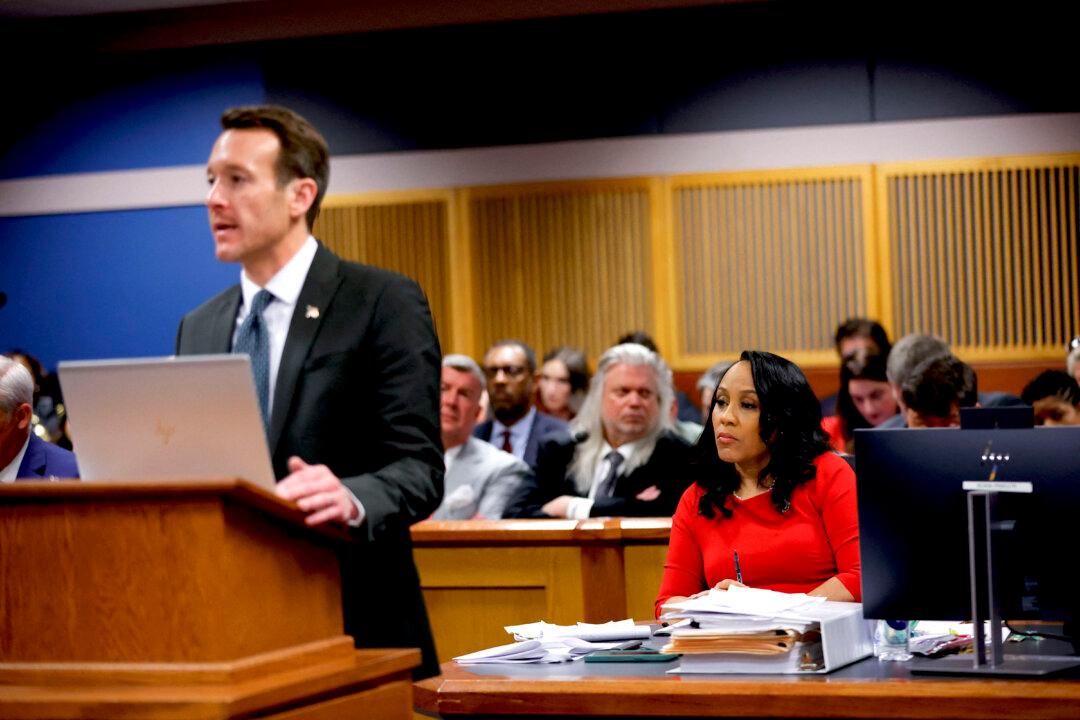Fulton County Superior Court Judge Scott McAfee heard closing arguments on March 1 on the motion to disqualify Fulton County District Attorney Fani Willis from prosecuting the high-profile racketeering case against former President Donald Trump and 14 others.
Each side was given an hour and a half for arguments, after which the judge said he hoped to file an order “within the next two weeks.”





